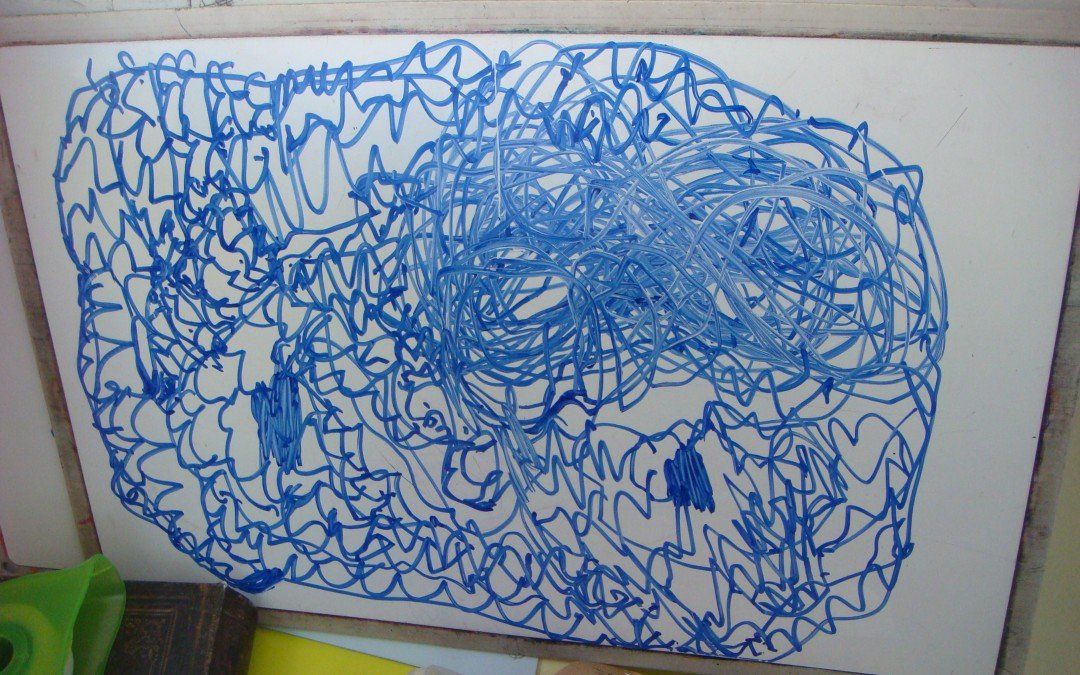
Jul 24, 2016 | Blog
.
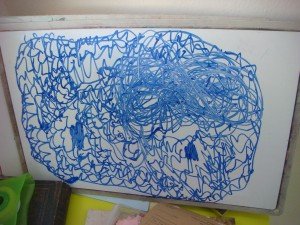
The door opened to a chubby, dark skinned little boy full of smiles plus a lot of tension in his body which was noticeable by the way he clenched and unclenched his fists.
“Hi,” I greeted him, “so happy to meet you. My name is Bella and yours?”
“Yonathan”, he proudly said and shook my stretched out hand.
“Come on in. Let’s see what I can help you with?”
Yonathan sat down across the table from me and very proudly told me that he could not read. This picture of pride remained in my mind.
The story that I had been told by his teacher was a strange one. Yonathan, was more than halfway through his second school year. He had learnt to read already in his first year at school. All of sudden he lost this ability. He had been sent to all sorts of tests; eye tests, psychological assessment, cognitive assessment. No-one could find anything wrong. I was the last resort she said. A heavy responsibility indeed.
I tried this and I tried that. Tried all the old tricks and made up new ones. We had lots of fun together but no progress whatsoever. During one of the sessions, I said I would read a sentence and put in nonsense words instead of a real word and I wanted him to tell me if he could recognize the word I read incorrectly and correct it. He always knew when I put in my nonsense words and how to correct it. But when he read a word incorrectly and I pointed it out to him, he could not correct it. I couldn’t work out was was going on. No sign of improvement, it was most unusual. One minute he knew and the next minute he didn’t. It was nerve wracking and weird. The words ‘does he know or doesn’t he know’ kept floating around my brain. I was on the edge of giving up and marking my first failure. Whilst sitting with my cup of morning coffee and thinking whether to ‘throw in the towel’ a mad thought eureked into my brain and I could not wait for our next session together.
For the next meeting, I decided to change the setting of the room. I wanted him to understand that we were going to work differently from now on and that he has to make new decisions. It wasn’t about me teaching him to read, it was something different entirely. We sat opposite each other without the table separating us and with a very serious look in my face and eyes, I said: “I have discovered your secret.” I did not say what I had discovered but he could hear that I was not playing games with him.
His body seemed relaxed at this point, almost as if he was happy that at long last he could share his truth. I handed him a glass of water which he willingly took and drank while looking straight into my eyes he said, “No one else managed, so how did you guess?”
I did not answer this question of his, I just quietly asked him: “Why did you do it?”
I had put all the information from all the sessions that we had done together and it seemed clear that this second grader had all the necessary knowledge to be able to read. But for some reason he had decided to mix everything up and make out that he could not and then I believed that he reached a stage where he was so confused that he couldn’t straighten it out for himself and had lost his own judgement as to what was right and what was not. His story was simple and somehow sad and lots of food for thought for all teachers out there.
He looked straight in my eyes and started getting the whole story out of his system. “I learnt to read quite easily and because of this no-one really paid much attention to me. The teachers were busy with my classmates who couldn’t read. During the year I noticed the teacher always talking to parents and telling them all sorts of things. I didn’t know what she was telling them. One day I asked her why she never spoke to my parents and she said that there was nothing to say to them because I was a good pupil. I felt hurt. I so wanted my parents to know that I was better than most of the others but understood that the only way to get her to invite them was if I didn’t know and not because I knew. And so I decided that I would become a ‘bad pupil’.
‘What an effort!’ I thought, ‘to know the sound and to put in its place something else…exhausting if you ask me!’ He was getting so good at it that he was beginning to forget which were the real sounds and which were the made up ones.
I promised him that I would not tell anyone his secret, on one condition, and that was that he would get back his reading skills and we would surprise everyone. We planned together that I would ask the teacher if he could read a story to his classmates one Friday morning when he was ready and invite his parents to come. It took us 6 more sessions and he was ready to face the class. Yonathan and I were so excited about the whole venture that neither of us slept the night before.
I waited at home anxiously, nervously and impatiently for an excited phone call from his teacher. By the afternoon i could not control myself any longer and called.
“How did it go?” I politely asked.
Her reply was one of anger. “What sort of tricks are you playing? You taught him a story which he learnt by heart and pretended to read!!!!”
TO LAUGH OR CRY – that is the question…
I almost lost my cool. I wanted to scream and shout and tear my hair out. I could see Yonathan so proud of himself standing there in front of the class and reading and once again just getting a causal sort of “that was good, thank you Yonathan’, from the teacher. No acknowledgement once again of the huge effort he had put into it.
“Instead of being angry”, I suggested, “you could have easily checked him quietly on your own with another text. I suggest that that is what you do and I will call you again and would like to know what happened.”
His mother called, “thank you for all the work and thought put into the sessions. I bought him a new basketball as a present for all the work that he had done and his success.” she said
I sat with the adviser to make sure that all parents should in the future be invited to school – even good students needed positive feedback! This little student was an important teacher to so many people and perhaps saved so many others from doing something like this.
Jul 7, 2016 | Blog
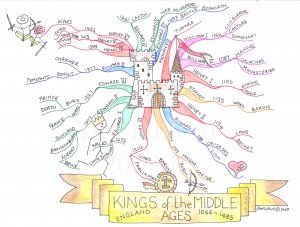
In the two former blogs that were posted I talked about left and right brain hemispheres.
At the moment I have two pupils, both with the same names, one in high school and the other in junior school. Both come to me on the same day. Both sat down as if in unison the same week, looked at me with these sad eyes and said: “I have a question to ask!” Hearing the voice and seeing those eyes I understood instantly that I was in for one of ‘those’ famous questions.
This is the story of the high school student who had discovered during the teachers strike that he actually has his future planned out for him. He is a very successful graphic artist who could make money from his talent. An ability that he was born with and which he never learnt but was more than willing to study.
After the strike he had to go back to school and face up to failing at certain subject and everyone saying that he had no choice but to get assessed so that he could make everything much easier and doable for himself. His reaction was: so why do it at all and what on earth do I need all these subjects for anyway?”
I took a deep breath, made a quick prayer and knew that this was one of the most important sessions of the year and if we got it right it would be the beginning of a fascinating and successful journey.
I have two answers to your question, I replied. The first one is that you really don’t need all these subjects; you can survive perfectly well without most of them. With that there was a wonderful smile and sitting back on the chair relaxed and happy. But, …..I continued, the second is that we have 12 years of schooling to develop our brain and develop the parts that are weaker. The strong parts of the brain are the things that we usually choose to use in later life and then we let go of the things that we are not so good at. But those are the parts that need to be developed so that we have a whole stronger brain. Our school years are there to help us to do this. We need the homework to discover if we can do things on our own without the help of the teacher and we need the tests to test ourselves if we have improved and if not,where are we failing. Failing to gather the information, failing to remember the information, failing to understand the question or failing in writing a detailed answer. Tests and their grades are important for ourselves not as a comparison to others but to see what we are failing in. It is vitally important to read all the teachers comments and even go to him/her afterwards to find out what we did incorrectly. Y looked at me amazed, with understanding and excitement…if that is the case, he said, teachers don’t know what their task is at school!!! I buy your answer and the thought of ‘exploiting’ school for my own purposes amazes and excites me, was his comment.
As for logistics: we decided that we would start with history which was the subject of great failure. 40% in the last test which immediately sparked off a telephone call to parents and a request from the school to do an assessment and receive permission from the board of education for an ‘easier’ exam. Y refused to do this by saying ‘these teachers really don’t know what school is about!!’ he tried to explain to his class teacher that he doesn’t mind failing or getting a low mark because that just means that he has to work differently and find a method to improve his grades….if everything is made easier for him then he has no challenge and cannot improve! His teacher’s answer was: “I am trying to help so that you can pass matriculation.” Y then said ‘but that doesn’t give me instruments for dealing with my difficulties!’
The next step was to work out a ‘learning and remembering strategy.’ He has great difficulty sitting in class and following the sequence of the different events especially as it is not a direct linear sequence, there was an enormous whole picture of events that he wasn’t understanding and there was all the interference in the classroom which didn’t help the mind follow the story and their details. He tried to write during the lesson because that is what his friends do but with no success and no understanding. Because of his fantastic graphic abilities we decided that instead of words we would use mind maps but using mainly pictures. So we started working on different ways to summarize and understand the material until we arrived at something which was exciting for him. Y was so thrilled at the thought of using his drawing abilities for subject matter that he stood at the door and said “I can’t wait to go and buy that ‘no lines’ notebook and prepare myself for the test in three days time and he actually danced down the stairs in glee.
A week after the lesson he came back with 74% for his test. Yeh! Almost twice as much as the last one. What were the comments I asked. The teacher said that he had not explained the concepts – what was the word emancipation for instance. Do you know what should have been written? I asked. His answer was ‘YES, But it is clear that the teacher knows as well so why write it!: A classic answer.
I suggested that next time he writes he should imagine that he is giving the answer to a little funny guy from outer space who doesn’t know anything!
Big smile! So we now wait for the next test.
Y’s notebook is a work of art – no one can really understand it except for himself. He remembers the pictures he draws, he makes lines and arrows to how events are connected to other events – but mainly the minute that he draws his pictures he understands and remembers the material.
And thus Y has conquered his weak spots and made them into something exciting and special for himself.
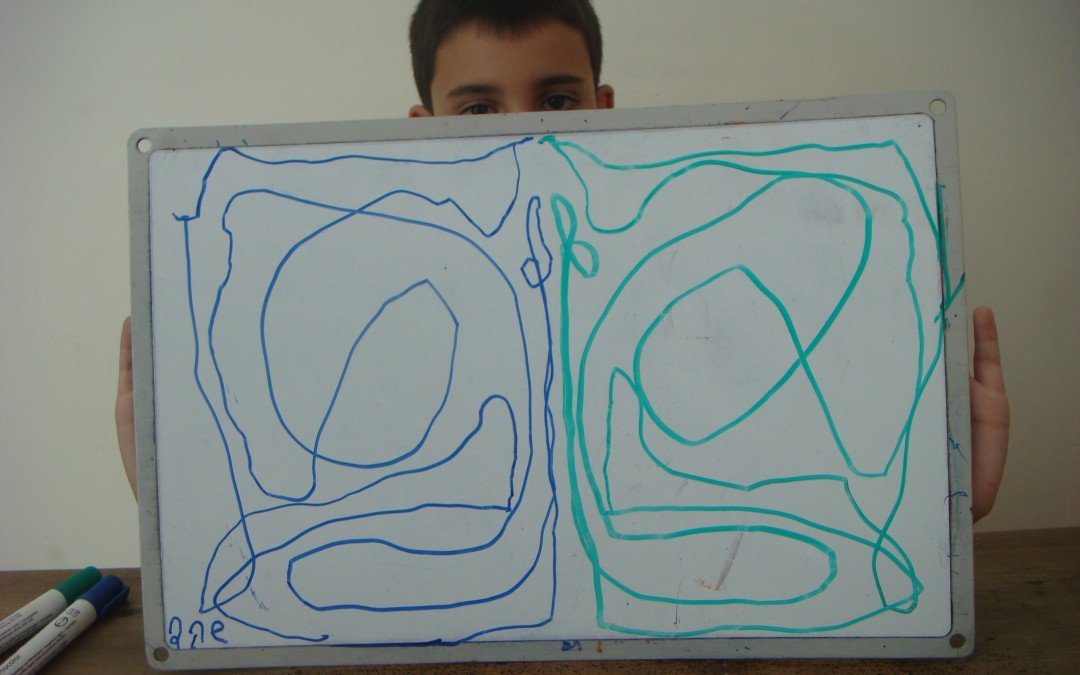
Jun 29, 2016 | Blog
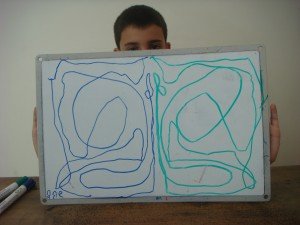
My last blog was about the different way each of us learns according to our dominant hemisphere. There are those who are right brained and others who are left brained. Have I ever asked myself as a teacher what my dominance is? As a teacher do i differentiate the two kinds of learning? How does one even start doing something like this?
Let’s take subjects like history or other similar subjects which have a lot of information on each page. If, I, the teacher gives a small summary , a picture,at the beginning of the lesson explaining what we are going to learn, it will give the right hemisphere dominant children a whole picture into which they can then put in the details as the lesson goes along or as they read the page and collect different information. Even better could be mind maps with very few words. Mind maps show how one event leads to another. The left hemisphere kids will perhaps not get much benefit from this but it should only take a few minutes of the class time or maybe less and anyway the righties are part of the group as well! Lefties like to gather the information one sentence at a time and then when that is done they should be told to go back to the summary that was given at the beginning. They will need the summary to help with their remembering all the information. The right hemisphere pupils will need the summary to understand the details and the lesson.
Mathematics. This is usually a wonderful lesson for most left hemisphere pupils – lots of little details – it is actually all little details which their brains love. Right brained children don’t always have an easy time with this subject. When dealing with fractions they need to be visually shown what two thirds are as compared to two eighths. They should be drawing lots of different shapes – circles, lines and squares and comparing what it means – three sixths, three tenths or three nines. Or one ninth, three ninths, five ninths…they need to visualize as a picture the meaning of what fractions look like – how can they be changed from one half to two fourths and how can lines be erased and they become one third from two sixths. First visually seeing and understanding. Then to get to the fractions as just numbers in the book.
The same with percentages. It is difficult to understand that 100 percent could be 50 or 80 or 1000. For instance I can have a library of 10 books – that is all the books I have – that is a 100 percent of books. Someone else can have 500 books – all the books they have – that is 100 percent of books. 50 percent of my books would be 5 and 50 percent of his would be 250. If a picture is shown and drawn and understood then the numbers afterwards will be turned into a right brained picture and easily comprehended. Basically right brained children need to visualize and see to understand whereas left brained kids do not need this – they comprehend the detail.
Often text books are geared or for the one and not enough for the other – it is okay if one has a text book in the class but as a teacher try and see how much is aimed for right brained and how much for left brained. Perhaps the class could be divided into two groups. It is good if the pupils themselves could understand which group is easier for them.
When I asked one of my right brained students how he did 9 minus 3 so quickly. He said: “Easy, I just imagined nine of my friends in the class and three went out because they had finished their work. So that’s easy….6 remained in the classroom. There is certainly understanding and he has worked out a way which is comprehensible for himself.
Jun 22, 2016 | Blog
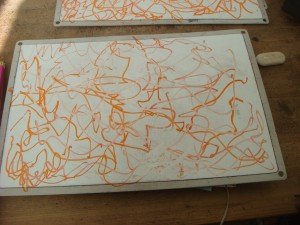
It invariably comes along – that question that I dread and welcome at the same time
WHY DO I NEED TO LEARN ALL THIS? A question that in my days as a pupil, would never ever be allowed to pass from my thoughts to outer space and it would be kept well hidden under my pillow at night, with at times, some tears and tons of frustration.
Today as a teacher I welcome this question for two main reasons: firstly the almost jealous feeling that I have, that the child in front of me is able to ask the question out loud and the wonderful feeling that I am on the receiving end of it. The second is that it is one of the questions that force me into the most creative mode of all for that particular pupil because there is no one answer….there is no one person…there is no one dynamic…there is no one learning problem and I find that I have to take into consideration lots of little details and formulate the answer in such a way that the child will walk out with a feeling of “now I know why I have to make the effort”.
Often it will take a few sessions before I am able to convince a pupil that there is a logical reason for all the homework and tests that we have to do and sometimes there is immediate understanding and I see the light gleaming in their eyes as they prepare themselves for the battle. And that is when the journey starts because we now have to meet the real challenges of how to learn, how to remember, how to concentrate and how to improve everything for ourselves and also to convince teachers that attitudes have changed.
Everyone has a dominant brain hemisphere. Left dominant brained people think and learn very differently than the Right dominant brained. Left dominant brains are much more detail orientated while their right hemisphere counterparts prefer a more overall picture of the subject matter. The lefties prefer doing a summary at the end of the session while the right brains love a summary at the beginning that helps them see the picture as a whole. Classrooms are usually left brained orientated. Text books have their own logic and they are not always adapted for all pupils. Some find them easy and others cannot understand the basic logic of what is written. This does not mean that a pupil cannot understand mathematics; it just means at times that the method is wrong for that certain pupil.
The first thing I do is to map out the pupil’s dominance so that he/she can understand the way THEY think and learn best. Usually the subjects at school that we receive lower grades and dislike do not have to do with our inability of understanding it generates from the way they are taught or the way we try and learn. And that is why ‘those subjects’ that annoy us most are the subjects that are our best teachers. To succeed in them we have to change. Change our attitude. Change the way we listen. Change the way we learn. Not close ourselves to them. Not get angry at the teacher, the subject, the homework or the tests. But ask questions. How would it be easier for me to learn, understand and remember? We need to study so that our brains can be challenged and we can then challenge ourselves with the HOW TO DO IT DIFFERENTLY AND SUCCEED.
Jun 4, 2016 | Blog

M was in his matriculation year and failing badly, He was making a nuisance of himself in the classroom and the teachers were loosing patience with him. He walked around disturbing everyone, giving a slap here and a punch there – almost as if he was not in control of his own actions. His mother called to ask if I could do anything to help. How do I know, I thought to myself. I have learnt to say ‘let’s meet and give ourselves three or four meetings and then decide.’
I had no idea of what to do when M comes along. What will I help him with? It is the last part of the year and so how do we choose what to study?
When he came, I was surprised to meet a very quiet, nice looking, well mannered young man. I took an immediate liking to him and kept on asking myself “does this polite gentleman really walk around disturbing his class mates?” Difficult to believe.
During our initial conversation, I discovered that M had no idea of his behavior and that he was causing havoc in the class. We started working like two detectives trying to discover what annoys the other pupils and the teacher. His first assignment was to write down things that he thought could disturb the other kids in every first lesson of every day during the week. Slowly he started understanding the things that he ‘should’t be doing’. I tried moving into the direction of learning strategies so that he could focus on his learning but I found absolutely no interest on his part. What he was more and more interested in was the way his body reacted to things – why was he biting his nails and how could I help him stop this. He was curious in how and why, the ‘whole world’ makes him angry and how he feels his body filling up with more and more violence and then bursting out in an uncontrollable reaction. It seemed to me that he was blocking all learning ability by wasting his energy on getting annoyed- not at himself , but everyone else. Maybe I am not the address and he should be seeing a psychologist? Decided that I would wait for a few sessions before suggesting this as I have a strange belief that if someone comes to me it means that they need me and I need them for some sort of learning.
Firstly I had to show him how his body was being depleted of energies by all this anger of his. This was easy. We had spoken about being partners and I could speak to him on a grownup level. I taught him some basics of kinesiology and how we could check his body for the flow of energy and how it gets interrupted or weakened by anger.
One session he came into the clinic laughing and said: ‘I have a stupid story to tell you: There was no Kelloggs for breakfast this morning and I was just about to shout and blame my mother and get into a bad mood, when something inside of me said ‘maybe you can have something else instead of Kelloggs or maybe you can even go to the shop and buy a packet? And all of a sudden it was so easy not to get angry at everyone! ”
What a happy moment it was for both of us. His mother hasn’t a clue what we do at our sessions, We do everything but cognitive learning. He now understands himself better, He knows if he needs physical exercises to release tension or to release blockages in the body when feeling anxious. He has started skipping every day to get rid of excess anger and also some weight.
At times I feel a bit guilty that we don’t do any school work together. This week he walked in as if a bright cloud had taxied him all the way up the stairs and before even saying hi, he proudly told me that he had got 91 for his first matriculation internal test. I then knew that we were on the right path!!!
And so what are learning problems?? Not sure anymore. But I do know that one doesn’t always have to work with subject matter to make a huge difference!!

May 14, 2016 | Blog
When Randy came the first time I knew that I had a ‘hard nut to crack’. He was 14 – a difficult age in most cases. He had had special lessons all his school life and was tired of being ‘dragged’ off to another one of these people. My gut feeling was, that his mother was getting tired of it too and had decided that this was the last time she was going to try again. There he sat – surly and sour and I felt the daggers being thrown at me without mercy, from his eyes straight to my heart.
There was a duel between us. Randy on the one hand who was going to prove once again that no one can help him and that he really hasn’t got a problem and this inner being of mine, rearing its head and quietly saying, lets see if we can deal with the challenge and then another voice reminding me that I have to use all the tricks of the trade to keep him coming long enough, so as to be able to discover the ‘problem’ and I dare not lose him after the first meeting – all these thoughts were racing through my head at the same time.
Randy’s intelligence seemed to become a stumbling block for him as far as his reading was concerned. From an early age he could gather 80% correct information from a text by just reading part of it. Listening to his reading, my first reaction – and mistake – was to say out aloud. THIS KID IS A READER, IF HE WOULD HAVE RECEIVED THE RIGHT INSTRUCTIONS AT AN EARLIER AGE HE WOULD BE A REAL BOOKWORM. Because of my own anxiety to end the session with Randy agreeing to come again, I had wanted to give him a feeling of success but had actually forgotten that they had gone through endless reading therapists. The look between mother and son reminded me that this was “the last station’ for them and I had made a serious mistake. I then decided to stop with the reading as I had the beginning of a theory about the way he looked at the written word. There was no accuracy in his reading. He just scanned the page making many mistakes. He would see a word and guess what it said without reading it. The result of all this was that the content would become a text that he was writing and not what was really written. Reading became a bore after a chapter or two. The story made no sense and that was the end of another book with the statement of ‘it is boring’. I was beginning to form an idea in my head what to do about his reading and needed to find out his mathematical skills and so we went over to things that he enjoyed and was good at.
Next lesson: Because of Randy’s intelligence I decided to try make him understand what he was doing. I first prepared a page of mathematical problems with answers. Part of these answers were incorrect. I asked him to find my mistakes, mark the exercises and correct them. He was delighted to find “the teacher’s” mistakes and put a big cross next to the wrong answers. My remark to him was ‘but the answer is almost correct’. I wrote 22 and you corrected it to 21, its not so wrong!. Triumphantly he said, it is close but it is wrong!
That is what I needed from him and was praying that the next part of the lesson will go down the way I had planned. I had typed a short story from a book but in every row had changed one word. I gave it to him and told him what I had done and asked him to find the mistakes. The first three sentences were challenging for him as he had to read each word and not just skim as he was used to doing. By the fourth sentence he was beginning to be irritated and angry and then he shouted “HOW CAN I UNDERSTAND ANYTHING IF THE WORDS ARE INCORRECT!!!!!” That was exactly what I wanted. I wanted him to notice how frustrating it is to understand a story when the words are incorrect. “But that is how you read,” I said, “only this time I was the one who changed the words according to my story. When you read you decide which words to change and you are actually rewriting the book and at a certain stage you get confused between your story and the authors. It is like the maths that you corrected. Words too have to be exact to understand the text.
We had our first agreement and understanding between us.
The next challenge was to note which words were being changed and why. Randy does not want to deal with hardships. But on the other hand, he was willing to go into a mode of proving to me, (representing teachers) that he could read and understand. He read slower, effort was put into the “true understanding of the text’. And it worked!!! It took quite a bit of questioning until he was willing to admit that he had made ‘an effort’. But it was an important admission because we then spoke about learning to make the reading effortless, efficient and enjoyable. Once he knew that he could read and what the problem was he came to the lessons motivated to ‘learn as quickly as possible’. It took another 8 lessons to get rid of old habits and take upon himself new ones and to become an avid reader and a true book worm!








